Graduate Student Profiles
Saint Louis University’s Department of Theological Studies offers a Ph.D. in Christianity in Antiquity or Constructive Theology designed to be completed in five years. Admitted students are guaranteed at least four years of funding as graduate assistants (research and teaching), with the possibility of a fifth year of funding as an adjunct. The department also offers M.A. programs in these fields.
Our students gain valuable teaching experience in the program and are mentored by faculty to present papers at major conferences like the American Academy of Religion and publish articles in peer-reviewed academic journals. The accomplishments of our students have contributed to the department’s high rate of success placing graduates in tenure-track and full-time teaching jobs in colleges and universities.
Graduate Students
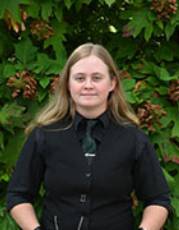
Mandi Becker
Ph.D. student
Mandi Becker studies themes of grief, suffering, and death in the early Christian experience. With a desire to better understand the ministry potential of the modern church regarding these themes, she seeks to unpack early narratives and understandings. Her research interests reside both in the theological discourses of the early Christians as well as their public ceremonies, such as funeral homilies and orations, particularly those of fourth century figures such as Gregory of Nyssa.
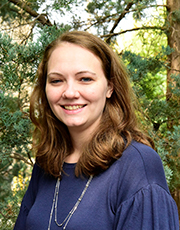
Amanda Berg
Ph.D. candidate
Amanda Berg is interested in the development of medical care with monasticism in the third and fourth centuries. She is particularly focused on early Church teachings on suffering, and she recovers those teachings to suggest ways the current health care system might think about defining, addressing, and treating suffering in a medical setting.
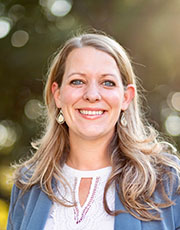
Kelly Bratkowski
Ph.D. candidate
Kelly Bratkowski studies early 20th-century American religion, with a particular focus on the entanglements of religion and science and their influence on the cultural conceptions of suffering, illness, disease, and healing. Her dissertation explores the Boston Emmanuel Movement, which began as a collaboration between ministers and physicians, combining religion and psychology to treat what was diagnosed at the time as functional nervous disorders. Through the lens of the Emmanuel Movement, she investigates the struggle taking place in early 20th-century America over the conceptualization of mental anguish as a legitimate and medicalized form of suffering, perceived as being linked to the rapid societal changes in post-Industrial Revolution America, and healed through an innovative and therapeutic blend of religion and science.
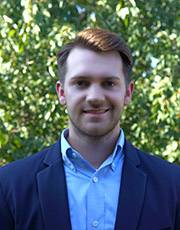
Caleb Mundle
Ph.D. student
Caleb Mundle studies political theology and ecclesiology. He is interested in the status of religion, and particularly of the church, in relation to the political sphere since early modernity. Caleb is also interested in the history of biblical interpretation, Augustine, the Nouvelle Théologie and ressourcement, and religion and violence.
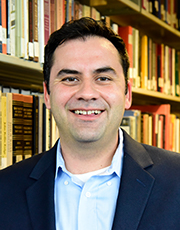
Tony Crescio
Ph.D. candidate
Tony Crescio studies moral theology and virtue ethics. He is pursuing a project of "ressourcement" to recapture a patristic understanding of virtue ethics and apply it to a modern understanding of moral formation. Crescio is also interested in the intersection of Scripture, ethics and sacramental theology.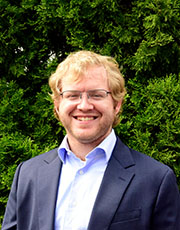
Michael Greve
Ph.D. candidate
Michael Greve studies the history of biblical interpretation from the patristic period to contemporary scholarship, particularly the exegesis between Trent and Vatican II. He is especially interested in the interpretation of the Pauline corpus in Catholic theology, and in pursuing authentic ecumenical dialogue through exegetical engagement. His figures of interest would include Cornelius a Lapide, Augustine Calmet, John Owen, F. C. Bauer, Johann Mohler, Geerhardus Vos, M. J. Lagrange, Heinrich Schlier, Andre Feuillet, Rudolf Schnackenburg, and Brevard Childs among many others.
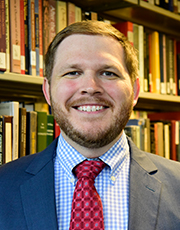
Joseph Grone
Ph.D. candidate
Joseph Grone studies patristic approaches to liturgy, sacraments and ecclesiology, as well as how these approaches relate to the developing doctrine on Jesus Christ and the Trinity. His dissertation focuses this interest upon Augustine of Hippo, as it examines his understanding of sacraments and ritual worship as the central means for forming and actualizing the church in its earthly pilgrimage.
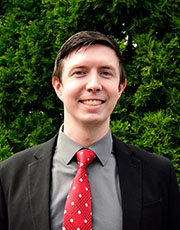
Clayton Killion
Ph.D. candidate
Clayton Killion is a scholar of patristic exegesis and early Christian attitudes toward the body, adornment and gender. He is particularly interested in the ways that the ancient Mediterranean generally — and early Christianity in particular — regulated and interpreted body, facial, and cranial hair.
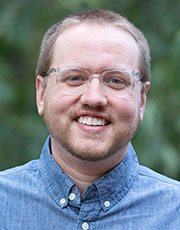
Ethan Laster
Ph.D. candidate
Ethan Laster is a scholar of late antique Christianity, with a particular focus on asceticism, mysticism, and prayer in the Christian East. Situating his work at the intersection of historical theology and religious studies, Laster’s dissertation investigates how the material settings of the eremitical life shaped notions of embodiment and experiences of God in East Syriac monastic authors from the sixth through eighth centuries.
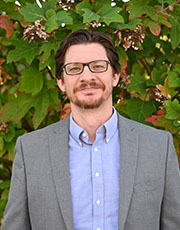
Travis Myers
Ph.D. candidate
Travis Myers practices comparative theology as a form of interreligious learning. His research specifically engages Chinese thought and religious sources as dialogue partners for constructive Christian theology. He is interested in topics such as embodiment, ritual, spiritual formation, and virtue.
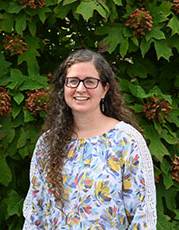
Jennifer Reyes Lay
Ph.D. student
Jennifer Reyes Lay (she/her) studies ecofeminist and ecowomanist theology. She is particularly interested in constructive theology and ethics, seeking to co-create theologies with the wider web of life that respond to Christian theology's role in causing harm and offer healing alternatives for the flourishing of the Body of God/dess. She is grateful for the work of Elizabeth Johnson, Rosemary Radford Reuther, Sallie McFague, Ivone Gebara, and Melanie Harris who have inspired and encouraged her own theological imagination in these pursuits.
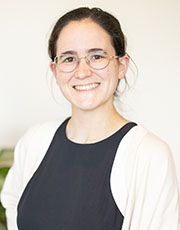
Allison Seager
Ph.D. candidate
Allison Seager studies theological anthropology with an interest in human development, growth in virtue, and the operation of grace. She is interested in engaging with modern psychology and hopes to integrate findings from the areas of trauma psychology and attachment theory into a theological account of human development. She takes Bernard Lonergan as an important guide in this interdisciplinary work.
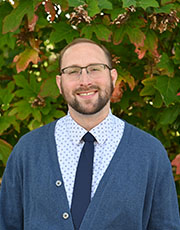
Michael Thiele
Ph.D. candidate
Michael Thiele studies theological ethics via a theology of ressourcement. His research interests include ecological ethics, medieval monasticism, Catholic social teaching, and the Franciscan Intellectual Tradition.
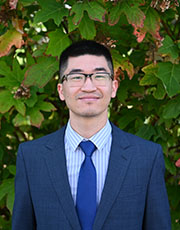
Jonam Wang
Ph.D. student
Jonam Wang was born in China, grew up in Beijing, and spent much of his adult life in the U.S. He is interested in the history of theology, with particular emphasis on early Christian theology and contemporary systematics, Trinitarian dogmatics, Chinese Christianity, cross-cultural hermeneutics and comparative theology, global Pentecostal-charismatic movements, as well as theological anthropology as it pertains to ethnic diversity. Figures who have occupied his interest lately include Irenaeus of Lyons, Cyril of Alexandria, W. E. B. Du Bois, K. H. Ting, Jürgen Moltmann, and Henri J. M. Nouwen.
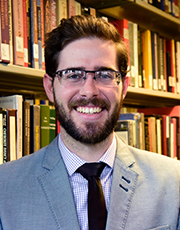
Mitchell Stevens
Ph.D. candidate
Mitchell Stevens studies fifth- through eighth-century theology in the eastern Roman Empire, focusing on personhood and the image of God. Translating and commenting thereon a series of homilies by Anastasius of Sinai, Stevens strives to show how this spirited, idiosyncratic monk produced a unique vision of the human person and how they relate to themselves, the world, and God.
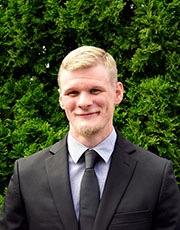
Josh Sturgeon
Ph.D. candidate
Josh Sturgeon studies process theology with a special interest in philosophy of time and ecotheology. Sturgeon seeks to demonstrate the constructive potential of process ideas while engaging in critical conversation with classical theism.
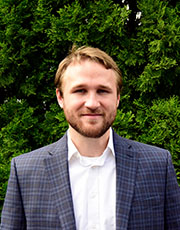
Andrew Tucker
Ph.D. candidate
Andrew Tucker studies Christianity in late antiquity. He primarily focuses on early Christian literature written in Syriac, with special interests in how early Christians interpreted Scripture using poetic forms, Christology, and the relationship between poetry and theology.